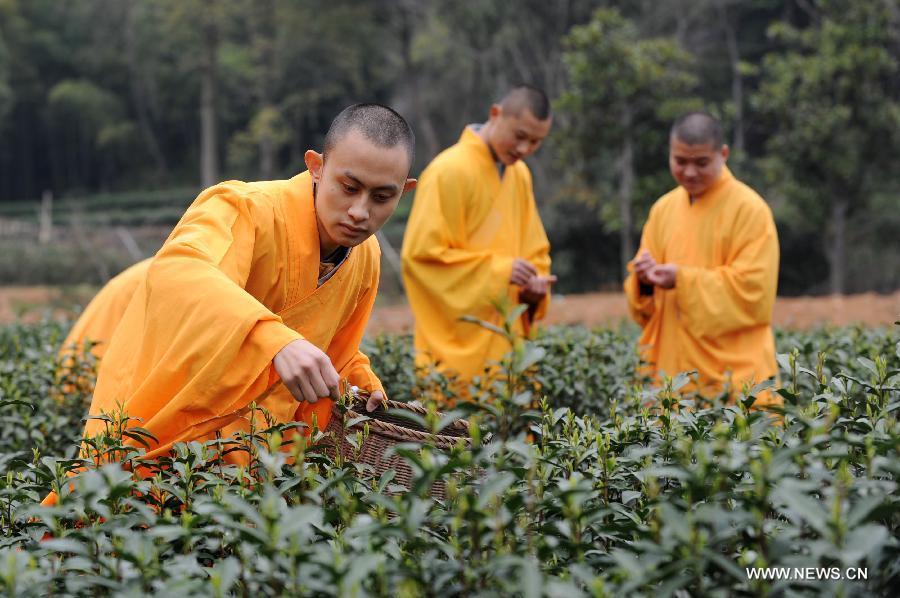From this month till December, The Robert H. N. Ho Family Foundation Centre for Buddhist Studies at the University of Toronto is running a workshop series on the relationship between tea and Buddhist culture, history, and practice, along with tasting and sampling sessions with tea sommeliers. In the diverse regions covered in this series (the Himalayas, China, and Japan), the relationship between Buddhist life and tea drinking has for centuries been infused, to use a choice word, with a sense of the secular everyday meeting the sacred presence.
Formal tea practice has existed in China since the Tang era (618–907) with Lu Yu’s (733–804) Tea Scripture. Lu Yu himself had a Buddhist teacher and was buried beside his stupa. According to a writer called Feng Yan, tea was favored as a sugarless drink in the monasteries in accordance with Vinaya (Buddhist law) rules, and for helping monks to stay alert during meditation. The acclaimed pilgrim monk Yijing (635–713) also chipped in with praise for tea, noting its medicinal properties in his journal during his travels westward to India: “Tea is also good. It is more than twenty years since I left my native country, and this alone as well as the ginseng decoction was the medicament to my body, and I hardly had any serious disease.”
In Buddhist temples across China, Taiwan, and many other Asian countries, as well as the Omotesenke and Urasenke schools of ceremonial tea drinking in Japan, the beverage is enjoyed as a sacred experience that is at once disciplined and a repudiation of total asceticism. Tea is an adornment, but a vital and beloved one, of life’s most essential liquid.
Personally, I think tea of all kinds and cultures symbolizes well the Buddhist attitude to worldly pleasure: acceptance and enjoyment without attachment. Tea, as exemplified throughout history, is associated with restraint but also heritage and belonging, with the Buddhist soil from where the leaves are collected across Asia. Tea, as the British say, is “the cup that cheers, but does not inebriate.” This is not to say that Buddhist householders can’t drink alcohol, but tea has been so closely associated with monastic life and Buddhist historical figures that enjoying the drink itself represents a journey from the mundane to the sacral.
Delight free from addiction, relaxation without stupor, escape short of intoxication. What more can one ask for from a simple brew? The acclaimed Vinaya preceptor and reformer Daoxuan (596–667), to whom Chinese monasticism owes an immense and critical debt, chastised monks who wasted their tea. Not much more needs to be said.

